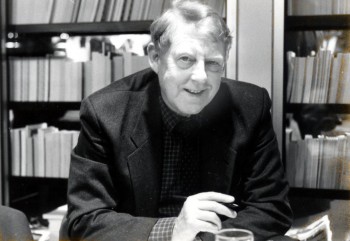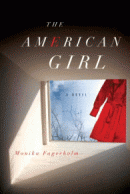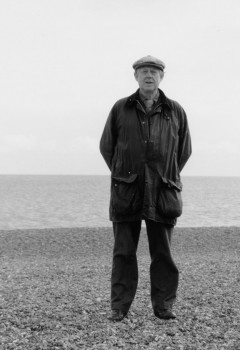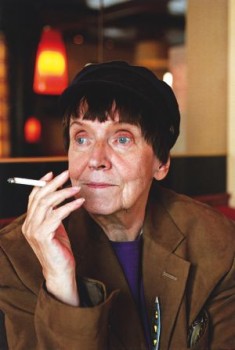Search results for "herbert lomas/www.booksfromfinland.fi/2004/09/no-need-to-go-anywhere"
In memoriam Herbert Lomas 1924–2011
23 September 2011 | In the news

Herbert Lomas. Photo: Soila Lehtonen
Herbert Lomas, English poet, literary critic and translator of Finnish literature, died on 9 September, aged 87.
Born in the Yorkshire village of Todmorden, Bertie lived for the past thirty years in the small town of Aldeburgh by the North Sea in Suffolk. (Read an interview with him in Books from Finland, November 2009.)
After serving two years in India during the war, Bertie taught English first in Greece, then in Finland, where he settled for 13 years. His translations – as well as many by his American-born wife Mary Lomas (died 1986) – were published from as early as 1976 in Books from Finland.
Bertie’s first collection of poetry (of a total of ten) appeared in 1969. His Letters in the Dark (1986) was an Observer book of the year, and he was the recipient of several literary prizes. His collected poems, A Casual Knack of Living, appeared in 2009.
In England Bertie won the Poetry Society’s 1991 biennial translation award for one of his anthologies, Contemporary Finnish Poetry. The Finnish government recognised his work in making Finnish literature better known when it made him a Knight First Class of Order of the White Rose of Finland in 1987.
To Books from Finland, he made an invaluable contribution over almost 35 years – an incredibly long time in the existence of a small literary magazine. The number of Finnish authors and poets whose work he made available in English is countless: classics, young writers, novelists, poets, dramatists.
Bertie’s speciality was ‘difficult’ poets, whose challenge lay in their use of end-rhymes, special vocabulary, rhythm or metre. He loved music, so the sounds and tones of words, their musicality, were among the things that fascinated him. Kirsi Kunnas’ hilarious, limerick-inspired children’s rhymes were among his best translations – although actually nothing in them would make the reader think that the originals might not have been written in English. A sample: There once was a crane / whose life was led / as a uniped. / It dangled its head / and from time to time said:/ It would be a pain / if I looked like a crane. (From Tiitiäisen satupuu, ‘Tittytumpkin’s fairy tree’, 1956, published in Books from Finland 1/1979.)
Bertie also translated work by Eeva-Liisa Manner, Paavo Haavikko, Mirkka Rekola, Pentti Holappa, Ilpo Tiihonen, Aaro Hellaakoski and Juhani Aho among many, many others; for example, the prolific writer Arto Paasilinna’s best-known novel, Jäniksen vuosi / The Year of the Hare, appeared in his translation in 1995. Johanna Sinisalo’s unusually (in the Finnish context) non-realist troll novel Ennen päivänlaskua ei voi / Not Before Sundown, subsequently translated into many other languages, appeared in 2003. His last translation for Books from Finland was of new poems by Vilja-Tuulia Huotarinen in 2009.
It was always fun to talk with Bertie about translations, language(s), writers, books, and life in general. He himself said he was a schoolboy at heart – which is easy to believe. He was funny, witty, inventive, impulsive, sometimes impatient – and thoroughly trustworthy: he just knew how to find the precise word, tone of voice, figure of speech. He had perfect poetic pitch. As dedicated and incredibly versatile translators are really hard to find anywhere, we all realise our good fortune – both for Finnish literature and for ourselves – to have worked, and enjoyed with such enjoyment, with Bertie.
Poet Aaro Hellaakoski (1893–1956) was not a self-avowed follower of Zen, but his last poems, in particular, show surprisingly close contacts with the philosophy. ‘Secrets of existence are revealed once one ceases seeking them’, the literary scholar Tero Tähtinen wrote in an essay published alongside Bertie’s new Hellaakoski translations in (the printed) Books from Finland (2/2007). Bertie was fond of Hellaakoski, whose existential verses fascinated him; among his 2007 translations is The new song (from Vartiossa, ‘On guard’, 1941):
The new song |
Uusi laulu |
| No compulsion, not a sting. | Ei mitään pakota, ei polta. |
| My body doesn’t seem to be. | On ruumis niinkuin ei oisikaan. |
| As if a nightbird started to sing | Kuin alkais kaukovainioilta |
| its far shy carol from some tree – | yölintu arka lauluaan |
| as if from its dim chrysalis | kuin hyönteistoukka heräämässä |
| a little grub awoke to bliss – | ois kotelossaan himmeässä |
| or someone struck from off his shoulder | kuin hartioiltaan joku loisi |
| a miserable old bugaboo – | pois köyhän muodon entisen |
| and a weird flying creature | ja outo lentäväinen oisi |
| stretched a fragile wing and flew. | ja nostais siiven kevyen. |
| Ah limitless bright light: | Oi kimmellystä ilman pielen. |
| the gift of lyrical flight! | Oi rikkautta laulun kielen. |
Books from Finland to take archive form
22 May 2015 | In the news
The following is a press release from the Finnish Literature Society.
The Finnish Literature Society is to cease publication of the online journal Books from Finland with effect 1 July 2015 and will focus on making material which has been gathered over almost 50 years more widely available to readers.
Books from Finland, which presents Finnish literature in English, has appeared since 1967. Until 2008 the journal appeared four times a year in a paper version, and subsequently as a web publication. Over the decades Books from Finland has featured thousands of Finnish books, different literary genres and contemporary writers as well as classics. Its significance as a showcase for our literature has been important.
The major task of recent years has been the digitisation of past issues of the journal to form an electronic archive. The archive will continue to serve all interested readers at www.booksfromfinland.fi; it is freely available and may be found on the FILI website (www.finlit.fi/fili).
Much is written in English and other languages about Finnish literature: reviews, interviews and features appear in even the biggest international publications. The need for the presentation of our literature has changed. Among the ways in which FILI continues to develop its remit is to focus communications on international professionals in the book field, on publishers and on agents.
The reasons for ceasing publication of Books from Finland are also economic. Government aid to the Finnish literature information centre FILI, which has functioned as the journal’s home, has been cut by ten per cent.
Books from Finland was published by Helsinki University Library from 1967 to 2002, when the Finnish Literature Society took on the role of publisher. FILI has been the body within the Finnish Literature Society that has been responsible for the journal’s administration, and it is from FILI’s budget that the journal’s expeses have been paid.
Enquiries: Tuomas M.S. Lehtonen, Secretary General of the Finnish Literature Society, telephone +358 40 560 9879.
Time to go
29 June 2015 | Greetings
[kml_flashembed publishmethod=”static” fversion=”8.0.0″ movie=”https://booksfromfinland.fi/wp-content/uploads/2015/06/Books_Kesabanneri_2015.swf” width=”590″ height=”240″ targetclass=”flashmovie”]  [/kml_flashembed]
[/kml_flashembed]
Animation: Joonas Väänänen
We’ve often thought of editing Books from Finland as being a bit like throwing a party.
It’s our job to find a place to hold it, send out the invitations and provide the food and drink.
It’s your job to show up and enjoy.
![]()
Books from Finland is a party that’s been running since 1967 – for nearly fifty years.
In that time, we’ve served up almost 10,000 printed pages and 1,500 posts, a wide-ranging menu of the best Finnish fiction, non-fiction, plays and drama, accompanied by essays, articles, interviews and reviews.
We’ve had a ball, and to judge by the letters and emails we’ve received from many of you, you’ve had a good time too.
But now it’s time to go: the landlord, to stretch the metaphor, has called in the lease on our party venue. Faced with funding cuts in the budget of FILI – the Finnish Literature Exchange, which has since 2003 been Books from Finland’s home – the Finnish Literature Society has decided to cease publication of Books from Finland with effect 1 July 2015. Our archive will remain online at this address, and the digitisation project will continue. We won’t be adding any new material, though; this is, literally, the last post.
![]()
The party may be over, the lights and music turned off – but what about the partygoers?
They are doing what partygoers always do: they – we – are moving on.
Readers and writers, photographers and illustrators, everyone who’s helped, supported and enjoyed Books from Finland, thank you!
So long. See you around.
Hildi Hawkins & Leena Lahti
A thankless task?
24 November 2011 | Letter from the Editors

Translator at work: St Jerome, translator of the Latin Bible in the late 4th century, is the patron saint of translators and librarians. Leonello Spada's 1610s painting, Galleria Nazionale d'Arte Antica, Rome. Picture: Wikimedia
Why translate, asked the late Herbert Lomas thirty years ago in an issue of Books from Finland (1/82) – the pay’s absurd, one’s own writing suffers from lack of time, it’s very hard to please people. And public demand for translation from minor languages into English was almost non-existent.
But he also admitted that translating is generally a pleasurable experience: ‘You have the pleasure of writing without the agony of primary invention. It’s like reading, only more so. It’s like writing, only less so.’ More…
Reference database ARTO
11 June 2010 | In the news
ARTO, a reference database of articles published in around 600 Finnish magazines and journals, created and updated by the National Library of Finland, is now available without charge and functions also in English.
For example, if you’d like to find out if there are any articles on Mika Waltari published in printed Books from Finland between 1967 and 2008, this is now possible.
(Please note that the articles themselves are not available through this database – if you would like to obtain copies of pieces from Books from Finland, for example, you will have to contact either the reprographic services at the National Library, or us: info@booksfromfinland.fi.)
The best thing
30 September 2004 | Fiction, poetry
Poems from Valekuun reitti (‘The path of the false moon’, WSOY, 2004). Introduction by Herbert Lomas
At first light I put my hand
in the hollow of a white willow –
once someone's cigarette box
had been left there –
now a bird flew out
going seaward.
Touch of a wingquill on the back of my hand.
It flew higher.
In the evening
I felt its touch on my shoulder blade.
Perfect thing
31 December 2000 | Archives online, Fiction, Prose
Extracts from the novel Ennen päivänlaskua ei voi (‘Not before sundown’, Tammi, 2000). Interview and introduction by Soila Lehtonen
A youngster is asleep on the asphalt in the backyard, near the dustbins. In the dark I can only make out a black shape among the shadows.
I creep closer and reach out my hand. The figure clearly hears me coming, weakly raises its head from the crouching position for a moment, opens its eyes, and I can finally make out what it is.
It’s the most beautiful thing I’ve ever seen.
I know straight away that I want it. More…
Scenes from a life
30 September 2004 | Archives online, Fiction, Prose
Extracts from Muistelmat (‘Memoirs’, Otava, 2004). Introduction by Soila Lehtonen
1973, Mietoinen
The shot put circle
Great Grandma knew a lot. She could look over to the neighbor’s yard two kilometers away and told us she could see a broom there leaning against the door. I was practicing the shot-put with the boys by the gable end of the barn. The shot flew three meters. Great Grandma walked past: ‘So what are you boys up to?’ I stared at the ground and said: ‘We don’t know yet.’
1980, Turku
The people in the neighboring car
Reeds rustled against the sides of the boat. The car stood in the sun. We drove into town. At the end of the trip, traffic slowed. I sat in the back seat and got a good view of the people in the car next to us. When we started moving again, I knew I would never see them again. After thirty seconds, they were there, right next to us. More…
American Girl goes America
12 February 2010 | In the news
 Monika Fagerholm’s novel Den amerikanska flickan has been published by the Other Press of New York.
Monika Fagerholm’s novel Den amerikanska flickan has been published by the Other Press of New York.
The American Girl was characterised by Publisher’s Weekly as ‘a hypnotic coming-of-age story that hinges on a dark but powerful bond between two Finnish girls growing up in the swamplands of outer Helsinki’. More…
Speaking about the heart
30 June 1991 | Archives online, Articles
New Finnish poetry, translated and introduced by Herbert Lomas
The ‘modernist’ revolution in Finnish poetry is now 40 years old, and the art must be ripe for changes.
Of course, the modernism of post-war Finnish poetry was not – except in Haavikko and to some extent in Saarikoski – extremely modernist. The poets were more interested in their content than their experiments. They were perhaps closer to ancient Chinese poets and early Pound than to Eliot in their elided brief juxtapositions and meditations on nature, society and moment-to-moment transience. The poets picked up a few liberties that unshackled them from metrical and rhyming formalities uncongenial to Finnish stress, syntax and phonemics; and they took off to speak about the heart. That is the strength of this poetry, and its originality, since all originality consists in being oneself – which includes one’s national self, and ultimately other people’s selves. And every generation still has to make a new start, admittedly in new circumstances, with the experience of its forefathers from birth to death. More…
Self-made man
1 April 2009 | Extracts, Non-fiction

On camelback: in the exotic part of Veijo Rönkkönen’s concrete cosmos there are animals and palm trees, side by side with the living plants of the northerly latitudes. - Photo, left: Veijo Rönkkönen; right: Veli Granö.
Extracts and photographs from Veijo Rönkkösen todellinen elämä / The real life of Veijo Rönkkönen (Maahenki, 2007. Translation: Kirsti Nurmela-Knox)




